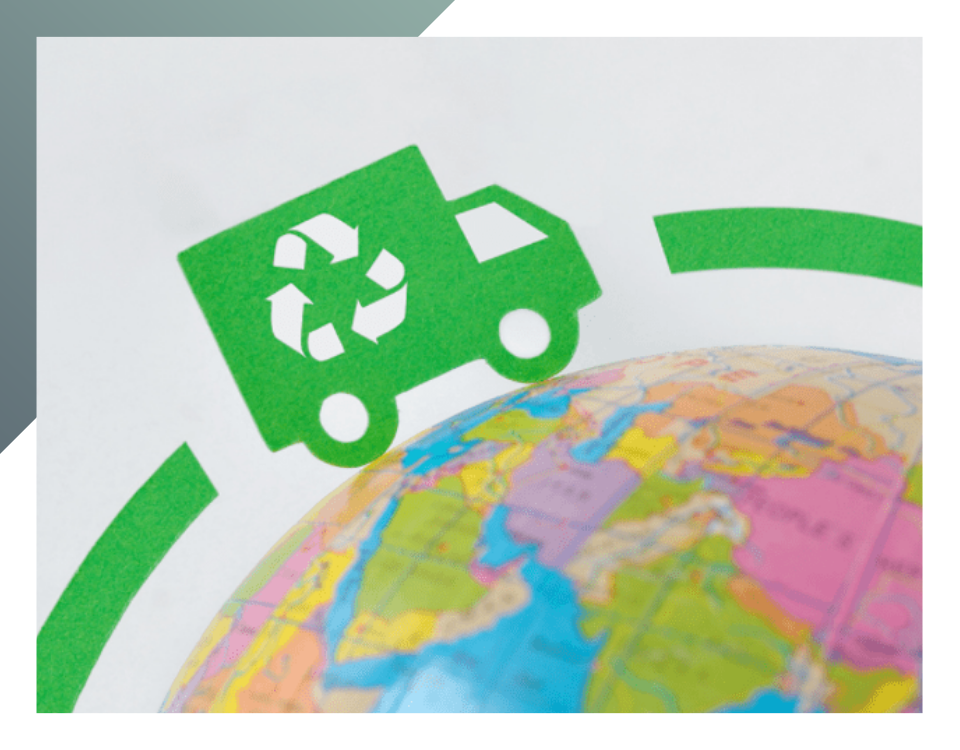Companies that adopt sustainable packaging identify a range of significant advantages in this strategy, which can increase their competitiveness in the market. In addition to being an ethical choice, reducing the environmental impact of packaging production processes ensures compliance with increasingly stringent international sustainability regulations. In order to achieve this goal, which is more necessary than ever as the years go by, it is essential to adopt a strategic approach throughout the entire life cycle of the packaging, from material selection to recycling stages. This holistic view of packaging ensures economies of scale that optimize company resources and, in the long term, build trust with consumers who are increasingly oriented towards sustainability. In addition to environmental compliance, these aspects create added value and increase the competitiveness of companies in the market.
Compliance with environmental regulations
It is estimated that around 180kg of waste is generated per capita in Europe each year. This number is expected to increase without appropriate interventions. The situation has raised alarms for several years within the European Commission, which has promoted initiatives and issued regulations to reduce the impact of packaging and carbon emissions disposed into the environment. The Green Deal and Agenda 2030 aim at zero greenhouse gas emissions by 2050 a 40% reduction by 2030 for all Member States. In addition to environmental labeling regulations, wich require companies to include recycling instructions and information on materials, Directive 94/62/EC on packaging and packaging waste establishes common rules for European Union member states to efficiently manage packaging and packaged goods trade, minimizing its environmental impact as much as possible. In Europe, especially in Italy, recycling regulations and initiatives have created an efficient system that promotes the circular economy. It is therefore possible to make strategic choices even in sectors where it is very difficult to eliminate non-reusable packaging. In the pharmaceutical sector, for example, it is still unrealistic to stop using materials like plastic in primary packaging due to contamination concerns, i.e., the permeability of alternative materials, and the strict health and safety regulations for packaging. However, it is possible to continue the correct collection and recycling of materials by increasing the use of cellulose derivatives and transparently communicating packaging disposal methods. Embracing sustainability ethics places a company at the forefront of the European agenda for waste and emission reduction, and the circular economy. For this reason, national and international organisations are increasingly offering bonuses, tax credits and fiscal incentives for the purchase of sustainable packaging or certified processed and semi-finished materials, some of which are derived from recycling activities in certain sectors.
Efficient supply chain
To make a sustainable choice that create economies of scale, it is necessary to adopt a holistic view of the product and its life cycle: from packaging design to packaging production and transportation, it is important to maintain a strategic approach that considers the entire supply chain and all operations that bring the packaged product to the shelf. Starting with material selection, it is possible to use FSC or PEFC certified cellulose-derived materials from responsibly managed forests that respect biodiversity, the economy and the survival of local populations. Modern eco-design criteria can create low-volume packaging solutions that avoid product waste, with a significant saving of unnecessary material. Investing in these sustainable materials can also affect packaging weight and optimize specific logistical operations, which are usually very costly, such as storage space management, palletization, and transport vehicles load capacity.
Increased consumer confidence and credibility
Planet health and environmental protection are very important issues not only for international legislators, but also for consumers. In Europe, due to the high awareness of sustainable initiatives in the consumer goods market and packaging, promoting an environmentally friendly packaging system can add value in terms of customer loyalty. Surveys and meta-analyses conducted in recent years by various research institutions, such as Nomisma, IBM, or Ipsos, confirm that waste management, carbon emissions, and climate change are significant concerns for the vast majority of consumers. In their consumption habits, they trust brands that provide clear information on proper packaging disposal and, above all, are committed to a sustainable supply chain starting from packaging. These two aspects are so crucial that they influence their purchasing choices: European consumers condemn over-packaging and reward material savings, recyclability and the use of raw materials from renewable, traceable and certified sources. Therefore, an increasing number of companies declare adherence to sustainability ethics by obtaining environmental certifications that attest to their social and environmental responsibility, as well as their participation in a circular packaging system. Thanks to its innovative packaging solutions and initiatives to reduce carbon, Eurpack and its Packaging Development Center promote sustainable production and strive to reduce the environmental impact of the packaging supply chain through a holistic approach, as evidenced by sustainability certifications acquired over time.
How can we help you?
If you would like to learn more about our commitment to sustainability or have any questions about our projects and initiatives, we are here to provide you with all the information you need.



